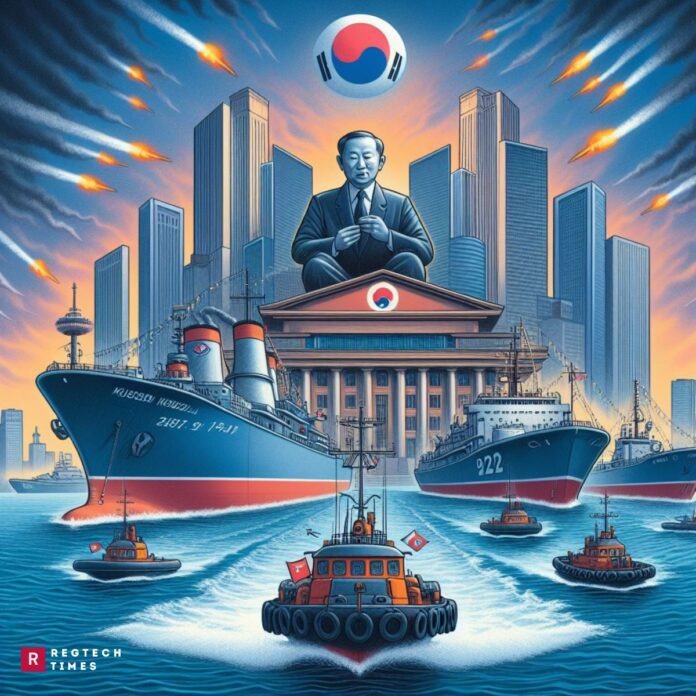Russia’s foreign ministry has taken a decisive step in response to Seoul’s imposition of sanctions on Russian vessels and individuals allegedly involved in illicit activities related to North Korea, in an episode of increased tensions on the Korean Peninsula. Seoul has been pressuring Moscow to lift the sanctions. The action highlights the growing distance between the two countries and raises questions about regional stability and the efficacy of international attempts to restrain North Korea’s nuclear ambitions.
South Korea’s Justification for Sanctions
The main point of dispute is that South Korea recently decided to impose sanctions on two Russian organizations that are allegedly aiding North Korea’s nuclear and missile programs. In addition, two individuals and the businesses they owned were involved in the illegal deployment of North Korean IT workers abroad. These workers are a valuable source of revenue for North Korea, potentially enabling its weapons programs. Seoul also attacked two ships that were reportedly carrying military supplies from Pyongyang to Moscow. South Korea’s determination to maintain international law and implement resolutions by the UN Security Council aimed at stopping North Korea’s illicit activities and nuclear development served as the impetus for these steps.
Russia’s Response
Russia adamantly denies the allegations and considers the sanctions imposed by South Korea to be “unfriendly.” Deputy Foreign Minister Andrey Rudenko expressed Russia’s displeasure to South Korea’s ambassador, Lee Do-hoon, upon the ambassador’s summons by the Russian Foreign Ministry to Moscow on Friday. The sanctions were described as “another unfriendly step” by Rudenko. Instead of aiding in attempts for a peaceful settlement, Seoul is accused by Moscow of taking unproductive steps that raise tensions on the Korean Peninsula. Russia has also hinted at potential countermeasures, with Foreign Ministry spokeswoman Maria Zakharova stating Russia “will respond in due course.”
This diplomatic standoff underscores the divergent perspectives and interests of the two countries in handling the North Korean issue.
Underlying Concerns
On the other hand, South Korea argues—citing the authority of UN Security Council resolutions— that its sanctions are legitimate and reasonable in accordance with international law. In addressing the nuclear threat posed by North Korea, a representative from Seoul’s foreign ministry reaffirmed the nation’s commitment to respecting these resolutions and international standards.
Russia stands in stark contrast to South Korea’s perspective. They see the sanctions as a potential roadblock to their connection with North Korea and as an assault on their right to national sovereignty. Moreover, Moscow believes that South Korea’s actions go against the cooperative and diplomatic spirit that ought to lead the region in addressing these complex matters.
Historical Ties and Regional Dynamics
Against the backdrop of larger geopolitical dynamics and power rivalries in Northeast Asia, the disparity between Russia and South Korea deepens. Russia has historically maintained tight diplomatic and economic relations with North Korea, acting as a vital supporter of Pyongyang’s isolated government. The interests of Moscow in the region frequently differ from those of South Korea and its allies, making it more difficult to come to an agreement on crucial matters like denuclearization and regional stability.
In conclusion, Russia’s summons of South Korea’s ambassador over sanctions highlights the widening divide between the two countries and the more difficult issues facing attempts to resolve the North Korean nuclear situation. The statement highlights the intricate geopolitical realities prevailing in Northeast Asia and emphasizes the criticality of diplomatic outreach in easing tensions.


